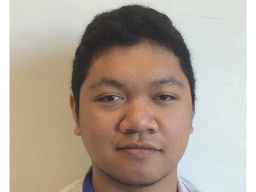PhD Defense: Ralph Colmenar
Location
Physics : 401
Date & Time
April 5, 2022, 1:00 pm – 3:00 pm
Description
ADVISOR: Dr. Jason Kestner
TITLE: Invalidating the geometric gate robustness conjecture and generating robust entangling gates using methods of dynamical error suppression
ABSTRACT: Noisy intermediate-scale quantum devices suffer primarily from coherent systematic error and stand to benefit from robust quantum control. To this end, methods of dynamical error suppression provide a means to achieve gate error rates that may be sufficient for fault-tolerant quantum computing. We present in this work a collection of theoretical studies that focuses on two methods in particular: composite pulse sequences and filter function formalism. We first employ composite pulses to reduce the effects of static systematic errors in coupled solid-state qubits. We then use the filter function formalism to analyze geometric gates. In particular, we disprove the geometric gate robustness conjecture which states that geometric gates are intrinsically more robust against certain errors than dynamical gates since their accumulated phase is related to some global geometric property of the system's evolution. Finally, we use dynamical invariant theory to develop a framework that is ideal for filter function engineering. We also use this framework to further analyze some properties of geometric gates.
TITLE: Invalidating the geometric gate robustness conjecture and generating robust entangling gates using methods of dynamical error suppression
ABSTRACT: Noisy intermediate-scale quantum devices suffer primarily from coherent systematic error and stand to benefit from robust quantum control. To this end, methods of dynamical error suppression provide a means to achieve gate error rates that may be sufficient for fault-tolerant quantum computing. We present in this work a collection of theoretical studies that focuses on two methods in particular: composite pulse sequences and filter function formalism. We first employ composite pulses to reduce the effects of static systematic errors in coupled solid-state qubits. We then use the filter function formalism to analyze geometric gates. In particular, we disprove the geometric gate robustness conjecture which states that geometric gates are intrinsically more robust against certain errors than dynamical gates since their accumulated phase is related to some global geometric property of the system's evolution. Finally, we use dynamical invariant theory to develop a framework that is ideal for filter function engineering. We also use this framework to further analyze some properties of geometric gates.
